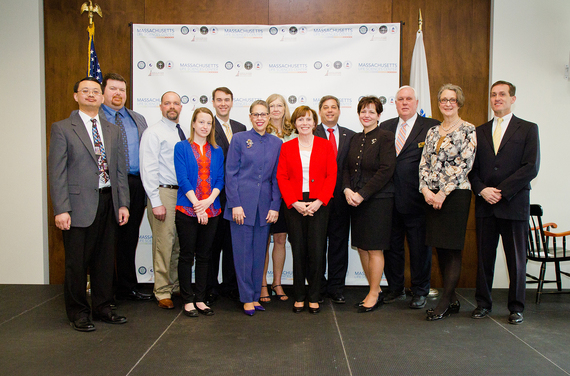In recent years there has been a loud and continuous outcry for institutions to lower costs associated with higher education -- a difficult thing to do considering costs that colleges incur continue to rise in every area. Health care, utilities, energy, food service -- many costs are beyond a college's control. Other expenditures are vital to the delivery of new or enhanced degree programs; colleges must offer and support a vast array of technologies, each with its own price tag. In the sciences, cutting-edge lab equipment is essential to prepare students for tomorrow's careers. For many programs, regulations for accreditation demand smaller class sizes, intense clinical experiences, and close faculty involvement. Colleges that maintain and exceed these standards provide a high quality education to their students, offering them the best chance for success.
So how can colleges contain costs while providing students with the programs of today and tomorrow? I believe partnerships and collaborations among institutions and between the academy and the marketplace offer the most promise. Finding and creating synergies -- it's a formula that works.
One example: Today, discoveries in the life sciences affect not only our health and wellbeing but also our marketplace and careers. Massachusetts has become a national leader in life sciences research and development, and at Endicott, we constructed a new science center to educate students for careers in robotics and other sciences, including biology, biotechnology, and bioengineering. We formed a partnership with North Shore InnoVentures, a non-profit technology incubator that helps early-stage companies increase their probability of success. Three North Shore colleges joined our collaboration -- Gordon College, North Shore Community College, and Salem State University -- to form the Life Sciences Consortium of the North Shore (LSCNS). Building on our unique strengths, each institution developed a focus -- a piece of the puzzle -- in the biotechnology field. A primary goal was to eliminate costly duplication, allowing our shared expertise to create the best options for students. For two years, the five organizations worked to define unique curricula, to create ways that would allow students to move easily between institutions, and to identify equipment and renovation needs for specializations at each institution.
The Massachusetts Life Sciences Center (MLSC), a state-funded investment agency that supports life sciences innovation, research, development, and commercialization, saw the value in this creative and collaborative approach and awarded our consortium a $5 million grant that will fund major facility and equipment upgrades at our member institutions and organizations. Collaboration has been enhanced, North Shore start-ups have received critical support, and the hundreds of students at each of our institutions will benefit each year.
I believe our consortium can serve as a model for maximizing impact while controlling expenditures. When private and public colleges work together, when resources are shared, when the needs of the marketplace are weighed and included, we can lower costs, increase flexibility and opportunity, and provide high quality education now and in the future.
